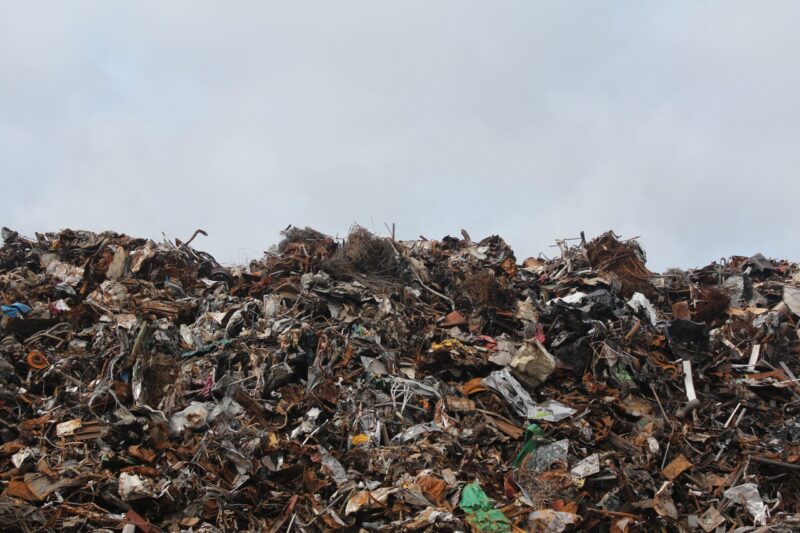Waste Management Practices in hospitals is not only a legal requirement but also a crucial aspect of maintaining public health, reducing costs, and minimizing environmental impact. Improper waste disposal in healthcare facilities can have far-reaching consequences, including increased risk of infection, environmental pollution, and legal penalties. Read on as we divulge the importance of proper healthcare waste management, its benefits, and practical strategies to effectively handle waste disposal in your hospital.
Why Proper Waste Management is Crucial
When talking about waste in hospitals, focus shifts to infections hazards and environmental dangers. That provides a peek on why proper waste management in health facilities is essential. The perks of proper waste disposal include:
1. Cost Reduction
Efficient waste management practices can significantly reduce costs associated with waste disposal and procurement of single-use items. To achieve this, Invest in reusable medical products to minimize the need for disposable items.
Explore opportunities to recycle certain materials, reducing the volume of waste sent to landfills.
2. Separation of Hazardous and Recyclable Waste
Proper segregation of waste ensures that hazardous materials are treated appropriately and recyclable items are diverted from landfills for the best Waste Management Practices.
Use clearly marked bins or color-coded containers to distinguish between general, hazardous, and recyclable waste. Train staff to identify and separate waste correctly.
3. Protection of Public Health
Inadequate waste management poses a threat to public health by facilitating the spread of infections and diseases. Strictly adhere to infection control protocols when handling and disposing of medical waste. Regularly train healthcare staff on proper waste management procedures to mitigate health risks.
4. Compliance with State or Local Regulations
Legal compliance is paramount to avoid penalties, reputation damage, and potential legal action against the hospital. Stay informed about and adhere to state and local regulations regarding healthcare waste management. Establish a compliance officer or team to oversee adherence to relevant laws.
How to Effectively Manage Waste Disposal
Managing your facility’s waste effectively requires concerted efforts from different departments. The strategies for managing a medical facility’s waste include:
1. Identify Waste Requiring Incineration
Certain medical waste, such as chemotherapy supplies, may require incineration due to their hazardous nature. Clearly label and segregate items that need incineration from regular waste.
Ensure that waste contractors are equipped to handle and dispose of incinerated materials appropriately for the best Waste Management Practices.
2. Use More Reusable Medical Products
Shifting toward reusable medical products reduces the volume of single-use items, decreasing overall waste production.
Evaluate and implement reusable alternatives for items such as linens, gowns, and containers. Develop and enforce proper cleaning and sterilization protocols for reusable items.
3. Switch to Digital Diagnostic Tools
The transition from traditional film-based diagnostic tools to digital alternatives reduces the environmental impact of waste generated by imaging procedures. Invest in digital radiography and imaging systems. Encourage the use of electronic health records (EHRs) to reduce paper waste.
4. Provide Staff with Proper Training
Well-trained staff are essential to ensuring the correct handling and disposal of medical waste, minimizing the risk of contamination.
Conduct regular training sessions for healthcare staff on waste segregation, disposal protocols, and infection control. Maintain accessible and up-to-date guidelines for reference.
5. Be Familiar With Local and State Laws on Waste Management
Compliance with local and state laws is critical to avoid legal consequences and to ensure that waste is managed responsibly. Establish a dedicated team or officer responsible for staying informed about and implementing waste management laws.
Periodically review and update waste management policies in accordance with regulatory changes.
6. Waste Segregation Using Color-Coded Containers
Clearly marked containers and a color-coding system help healthcare staff differentiate between various types of waste. Use different-colored bins for general waste, hazardous waste, and recyclables. Ensure that containers are clearly labeled with instructions for proper disposal.
Conclusion
Proper healthcare waste management is not just a regulatory requirement but an ethical responsibility to protect public health and the environment. By recognizing the importance of effective waste management and implementing practical strategies, hospitals can contribute to a safer, more sustainable healthcare system.
Investing in reusable products, adopting digital diagnostic tools, providing staff training, and adhering to local regulations are integral components of an actionable waste management plan. Also, the use of distinguishable containers or color coding enhances waste segregation, ensuring that hazardous materials are treated appropriately and recyclables are diverted from landfills. Harness the opportunity and put into action these tips as you uplift your hospital’s waste management protocols to a new level.


Write a comment
Your email address will not be published. All fields are required